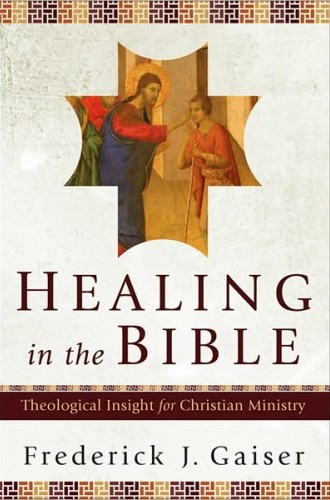God of wholeness
Healing has almost dropped out of the so-called health-care debate, drowned out by political and economic issues and loud competing ideologies. In the midst of that contestation, Fred Gaiser, a skilled scripture interpreter at Luther Seminary, offers a sober, accessible review of the biblical materials pertinent to our thinking about healing. He does not aim to resolve our current issues, but he does attempt to reframe our thinking and talking about healing as a counter to positivistic notions rooted in scientism.
The bulk of his book consists of expositions of specific biblical texts, eight from the Old Testament and six from the New; an appreciation of the famous text of Ben Sirach that affirms the importance of doctors; and a compelling conclusion concerning Isaiah 53 and being healed by Christ's bruises.
Gaiser is not a biblicist who wants to replace modern scientific medicine with faith healing. But he does insist that scientific medicine addresses just one dimension of a mystery of healing that invites other perspectives, hosts other dimensions and admits of thick, complex thought that has a theological aspect.





